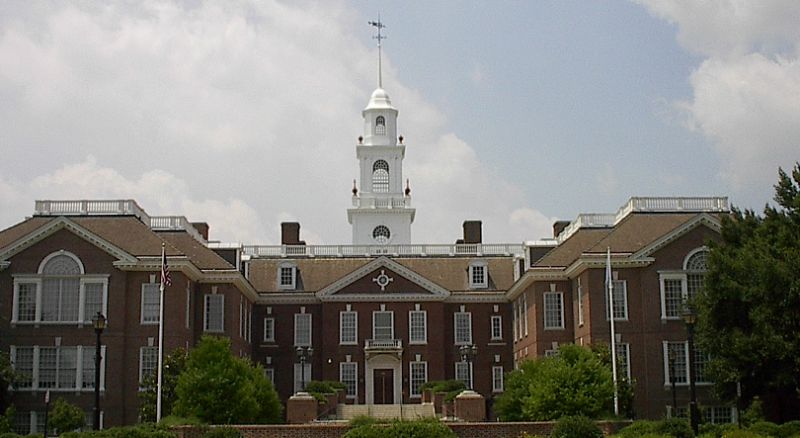Legislative Hall witnessed a significant development as a bill, House Substitute No. 1 for House Bill No. 94, received approval from the Delaware House and Senate.
The bill, introduced by State Rep. Edward Osienski (D), aims to implement a five-year trial run of a system that would permit the use of automatic speed cameras in work zones and residential areas.
Under this proposed legislation, Delaware seeks to enhance road safety by utilizing automatic speed cameras to monitor and deter excessive speeding within work zones and residential areas the bill reads. The bill addresses concerns regarding the effective enforcement of speed limits. In recent years there have been shortages in the number of candidates signing up to become law enforcement officers.
According to the 2021 International Association of Chiefs of Police Survey on police retention and recruitment: 78% of agencies reported having difficulty in recruiting qualified candidates. 65% of agencies reported having too few candidates applying to be law enforcement officers.
In addition to the shortage of officers, there are other limitations faced by law enforcement. Today officers and resources are stretched thin. Combine that with an uptick in crime traffic stops take a back seat.
Police agencies in the state have rolled out a number of initiatives from time to time to try and reduce serious and fatal collisions on major roadways, however, drivers simply go back to speeding when the programs end.
The bill has passed both the House and Senate and awaits the governor’s signature. If signed by the governor, it would allow the Department of Transportation (DelDOT), New Castle County, and municipalities to enforce speed limits using electronic speed monitoring systems.
DelDOT expects work zone expenses for these systems to be included in capital projects, while expenses for residential systems in New Castle County or municipalities will be the responsibility of the county or municipality.
The exact number of future monitoring systems is unknown, but if the volume of civil hearings becomes burdensome, the Justice of the Peace Court may require additional staff. Revenue from the monitoring systems may cover the costs of a new position if needed.
The integration of the Criminal Justice Information System with the selected monitoring system vendor will require contractual staff and is estimated to cost $138,000 in fiscal year 2024. There are no applicable costs for fiscal years 2025 and 2026.
In the proposed system, automatic speed cameras would be activated when a motor vehicle exceeds the posted speed limit by 11 miles per hour or more. Notably, violations detected by these cameras would result in civil penalties rather than points being added to the driver’s license. This approach aims to focus on improving driver behavior and increasing compliance with speed limits, rather than imposing punitive measures the bill reads.
To ensure a fair and transparent process, the jurisdiction for adjudicating alleged violations would be assigned to the Justice of the Peace Court. In cases where the penalty exceeds $100, individuals would have the right to appeal to the Court of Common Pleas.
Financial aspects of this legislation have been considered. Any excess revenue generated by the speed monitoring system, beyond the costs of administration, would be managed by the Office of Highway Safety. These funds would be dedicated exclusively to initiatives related to education, enforcement, engineering, and administration, further reinforcing the commitment to enhancing road safety throughout Delaware.
It is important to note that House Substitute No. 1 for House Bill No. 94 includes a sunset provision, which states that the Act will expire in five years unless extended by subsequent legislation.

